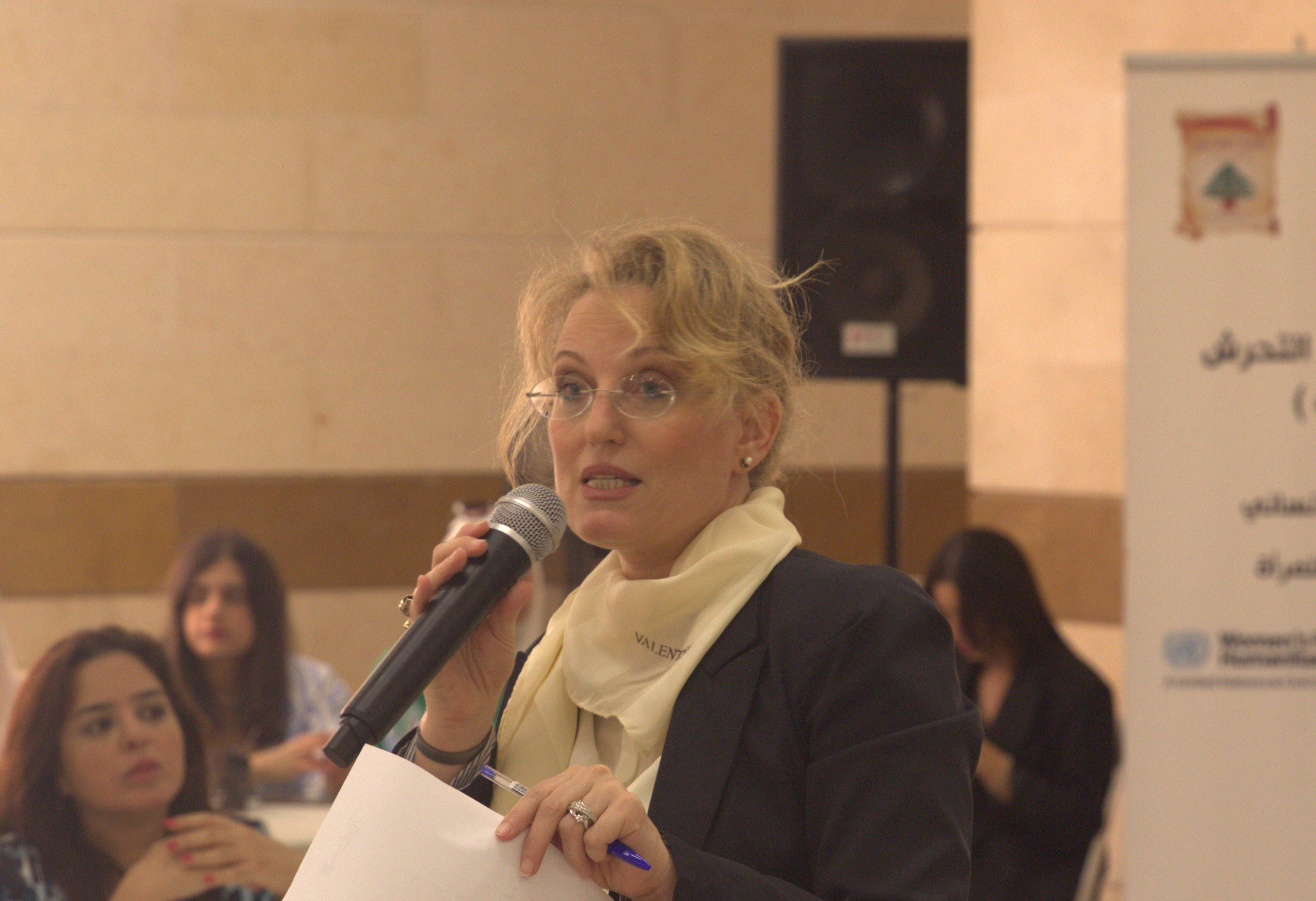In the words of Rana Dabliz: “I believe change is possible, but it requires belief, persistence and collaboration”
Date:
Rana Dabliz, a lawyer and human rights advocate, has spent her career championing justice and equality. From her beginnings at the Lebanese University to her impactful role at the Tripoli Bar Association, her journey reflects a steadfast dedication to creating transformative change.
"My passion for human rights advocacy began the moment I decided to study law. I’ve always believed in the power of standing up against injustice, and I knew I could make a difference. I studied law at the Lebanese University and went on to earn my master’s degree at Sagesse University, all while staying deeply connected to my community.
Growing up in a supportive family gave me a personal understanding of the challenges women face. Later, having a partner who shares my vision strengthened my resolve to fight against the inequalities women endure in our society.

My involvement with the Lebanese Council of Women was a turning point. I joined its Legal Committee, eventually becoming the youngest head. We tackled pressing issues like the Juvenile Law, nationality rights for children of Lebanese women and women’s political participation. These experiences shaped my commitment to advocate for women’s rights at both national and international levels.
I had the opportunity to [do a workshop] with the International Criminal Court in The Hague, which broadened my perspective and skills. I also co-founded the Ward Association, where I focus on addressing economic violence against women. Over the years, I’ve produced 12 studies exploring the relationship between laws and economic violence and drafted a legislative proposal connecting economic violence to labour and anti-harassment laws. Presenting this proposal to the Lebanese Parliament is my next goal.
When I joined the Human Rights Institute at the Tripoli Bar Association in 2008, I saw it as a chance to make a tangible difference. Over the years, I’ve worked alongside colleagues to advocate for women’s rights, leveraging networks and partnerships to drive change.
One project that stands out is the initiative supported by the Women’s Peace and Humanitarian Fund (WPHF) in partnership with Mousawat. Through this project, we broke the silence on sexual harassment in taxis – an issue that was rarely, if ever, addressed. The roundtable discussions we organized brought together stakeholders who had never imagined working together. It was ground-breaking.
Including marginalized women in these discussions was a priority. Collaborating with the Forum for the Rights of Persons with Disabilities ensured that all voices were heard.
This project has been transformative. For the first time, law practitioners and security forces came together in Tripoli for training and dialogue. The draft agreement on a reporting mechanism for harassment is a groundbreaking step that I hope will soon come to light. If successful, it could combat harassment in taxis across Lebanon, not just in Tripoli.
I believe change is possible, but it requires belief, persistence and collaboration. Organizing and joining forces with civil society organizations is key. Despite the backlash we sometimes face, we have always stood firm. We found common ground and proved skeptics wrong through our achievements. Our work is proof that perseverance and collaboration can overcome even the toughest resistance.”